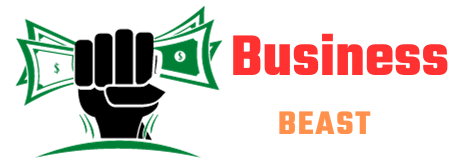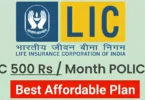Using credit cards to obtain credit and make purchases is a common and practical practice. They provide a number of advantages, including protections, emergency funds, prizes, and credit-building opportunities. However, there are disadvantages to using a credit card as well, such as the possibility of debt accumulation, exorbitant interest rates, and the desire to overspend. We will examine the benefits and drawbacks of credit cards in this blog post so you can decide if this kind of payment is appropriate for you. Let’s first review the fundamentals though.
What are Credit Cards?
A bank will issue a credit card, which is a financial instrument with a predetermined credit limit. Using a credit card, you can pay for anything and anything without using cash. The bank bases the credit limit it issues on the income, credit history, and credit score of the cardholder.

Credit Cards Advantages
Luxury of credit: You have the luxury of spending money out of your pocket when you use a credit card. With credit cards, you can temporarily borrow money from a bank to make purchases that are essential. All you have to do is carefully manage your budget so you can pay back the credited amount on schedule. Additionally, you get up to 45–50 days of interest-free credit during which you can borrow as much as you need (up to your credit limit).
Affordable EMIs: Using your credit card to make large purchases? Don’t stress over paying back the enormous sum. You have the option to pay the billed amount over an extended period of time by converting it into simple, cost-effective installments. By doing this, you won’t have to worry about burning a big hole in your wallet when you pay your credit card bill.
Build financial health: Paying off credit card debt on time promotes sound financial standing. The ability to establish and preserve a credit line with good credit card use is one of the fundamental advantages of credit cards. Banks may observe your credit repayments and card activity through this credit line.
Improves credit score: The efficient use of a credit card demonstrates your ability to manage your finances. Therefore, owning a credit card aids people in raising their credit score from a poor one. Using credit cards as “credit builders” can help you develop better borrowing practices. You can progressively raise your credit score and demonstrate your ability to manage loans and credit over time by using your credit card responsibly.
Security: A safe and secure financial tool is credit cards. There are far more safety features on credit cards than on other financial instruments. Furthermore, a number of banks and credit card issuers have implemented a number of security protocols to guarantee the security of transactions.
Balance Transfer: For example, if you have an outstanding credit card payment and don’t have the money to pay it off right away, you can move the debt to another credit card and take advantage of the new card’s interest-bearing charges. Furthermore, under specific circumstances, you might also be able to take advantage of the zero percent introductory interest rates on balance transfers. For transferring the balance, there may, however, occasionally be an additional cost.
Easy loan approvals: You can obtain bank loans by using credit cards. Your bank will then transfer funds to your bank account, deducting it from your available credit limit. The applied loan amount will be transferred to your bank account within a few minutes of your loan being authorized. It is important to remember that a solid credit history and a history of borrowing will also positively impact your credit score.
Additional benefits: Many extra credit card advantages are available for use on purchases made with a certain kind of credit card. You may receive these extra advantages in the form of discounts, cashback, and reward points that you may use for subsequent purchases. Buying a credit card is another option available to you based on your individual requirements. Depending on how much is spent, this kind of credit card will provide additional rewards.
Record of expenses: All of the purchases you make with a credit card are recorded. You can see these specifics on your credit card bill. You will be able to better manage your finances and create a monthly budget if you keep a thorough record of all the expenses you make with your credit card.
Disadvantages of Credit Cards
Credit cards provide many advantages, but they can also have some drawbacks. Since excess of anything is bad, it is advised that you make good use of your credit card. Here are a few things that could go wrong if you don’t make good use of the credit card.
Overspending: Due to the fact that credit cards give you credit in a big way, there may be times when you use the available limit to make unnecessary purchases and end up in debt.
Fraudulence: Credit cards are among the safest financial instruments, yet online fraud is still a possibility. It is also possible for criminals or fraudsters to obtain your credit card information and utilize it improperly. Furthermore, the cardholder has a three-day window of time to notify the bank of any fraudulent transactions performed by third parties.
High-Interest Charges: When using a credit card, there is an extremely high-interest rate that applies to the invoiced amount, which could potentially result in large debt. But only in the event that the credit amount is not paid on time will this interest become due.
Surcharges: You may be required to pay a surcharge, which is an extra cost when using a credit card to make a certain payment. Nonetheless, this charge is often levied on gasoline and train reservation costs.
Limited Cash Withdrawal: Credit card cash withdrawals are subject to fees, unlike debit card transactions. When taking out cash with a credit card, there is an applicable annual interest rate of roughly 40% (3.35% per month).
The Myth of Easy Money: The primary drawback of credit cards is their tendency to lead to overspending with unearned funds due to their user-friendly nature. You will have to pay it back, even if it can first seem like “free money.” The longer you delay, the more money you will owe because of the high interest that accrues.
High Interest Rates: A lot of credit cards have extremely high-interest rates, which can add up if you don’t pay the entire amount each month. Additionally, if you take out a credit card loan or are a little behind schedule on your payments, you will be hit with high-interest rates, which can range from 24% to 36% a year.
Annual Fees: Recall that the majority of credit cards include an annual charge. People seem to overlook this, but how do you believe the banks are able to occasionally provide short-term loans? They may end up costing more than you had anticipated when you factor in the annual fee and interest.
Conclusion
Taking all of the credit card benefits and drawbacks into consideration, it is obvious that you should get a credit card for yourself. Eventually, you’ll be able to take advantage of all the benefits a credit card has to offer if you incorporate it into your daily routine habits like paying your credit card payments on time and managing your credit card costs sensibly.








Leave a Comment